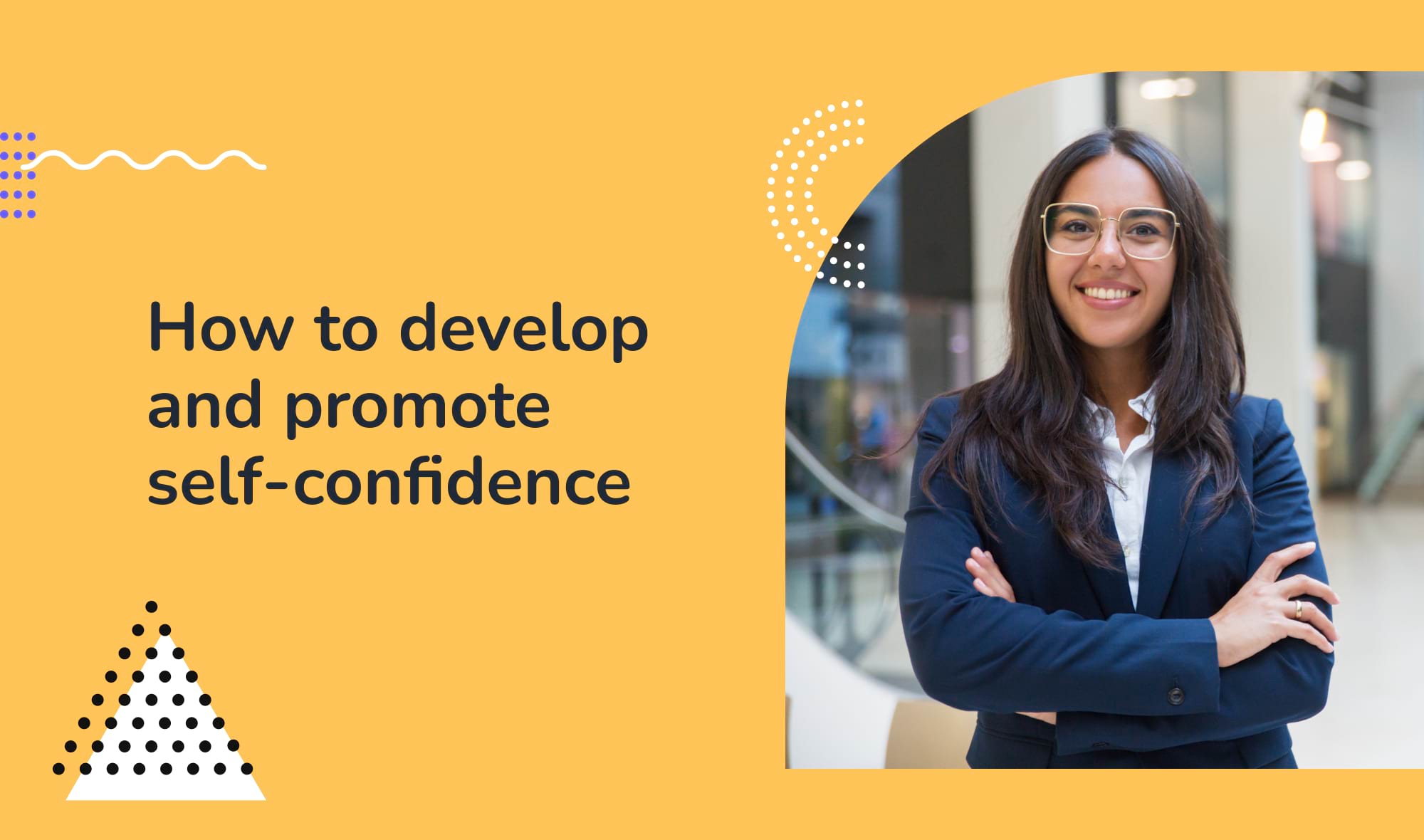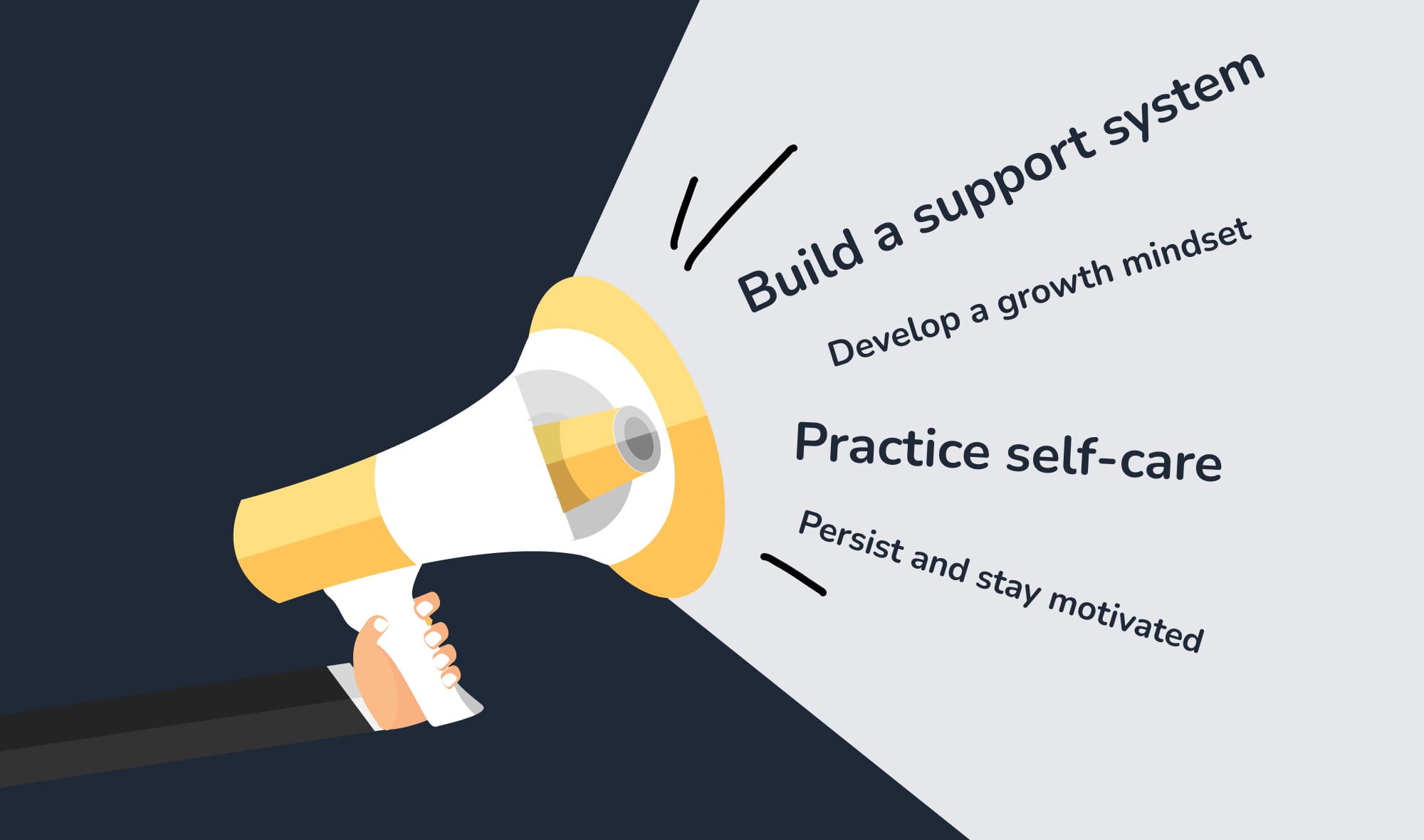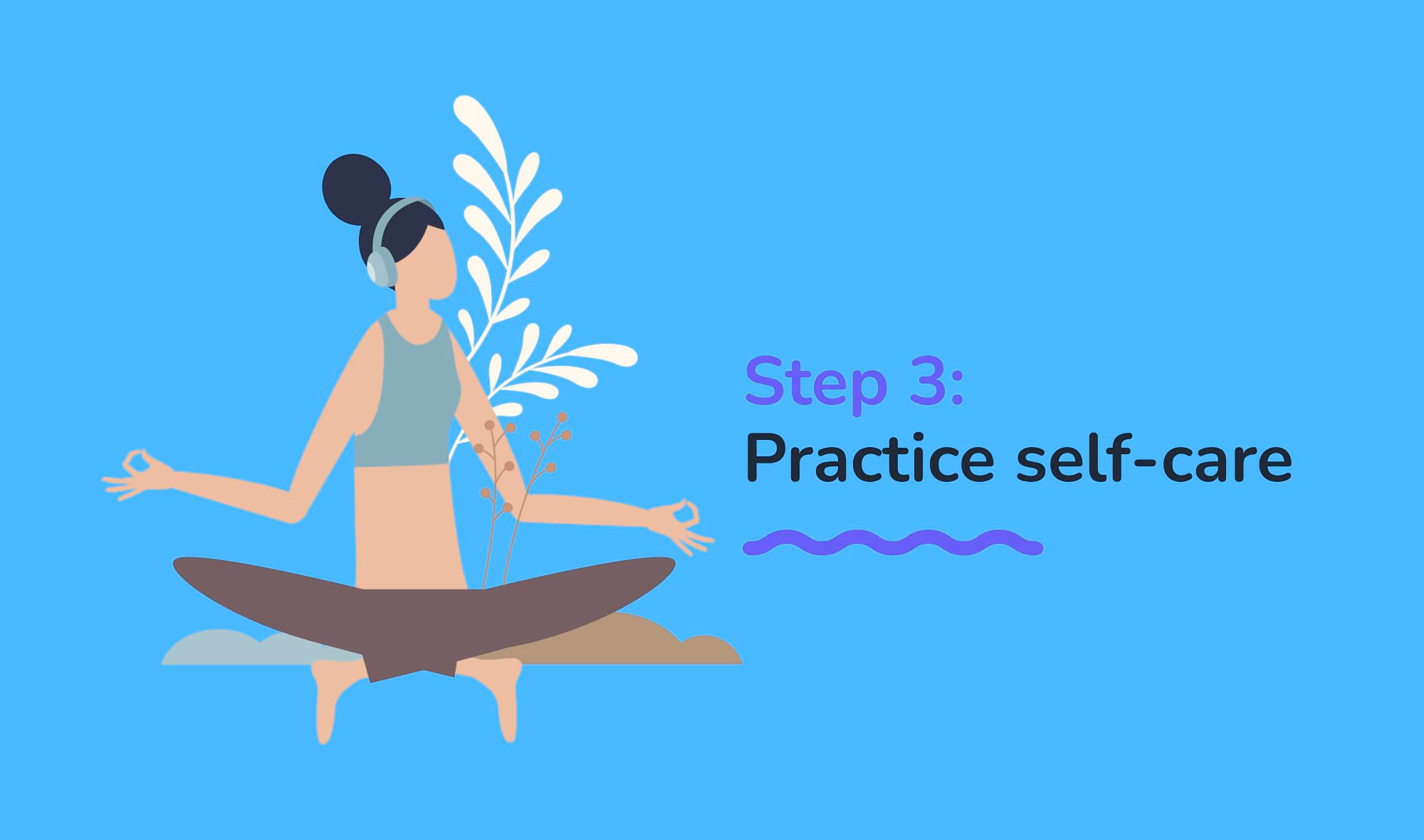How insecure are you: mastering your mindset to conquer self-doubt
By Remy Meraz • April 20, 2023

Feelings of self-doubt can be overwhelming and debilitating, causing individuals to question their abilities, worth, and value. These negative thoughts can lead to a poor self-image, low self-esteem, and a lack of confidence. In extreme cases, it can even create mental health issues such as anxiety and depression. However, with the right mindset, it is possible to conquer these negative thoughts
In this blog post, we will explore the concept of mastering your mindset, specifically how to overcome insecurity and build resilience. We will dig deep into the root causes of these negative sensations, provide practical tips for developing a positive mindset, and offer guidance on cultivating self-assurance in the face of challenges.
With the right tools and techniques, anyone can improve their self-worth, as well as their overall well-being. Read on to better understand how to conquer your biggest insecurity and feel safe and empowered to take on whatever obstacles come your way.
Join our Newsletter
Transform your career with our personal growth insights. Get one valuable tip right in your inbox every Saturday morning.
Am I insecure?

Insecurity is a feeling of uncertainty, lack of confidence, or self-doubt about oneself, one's abilities, or one's place in the world. It is a common human emotion and can arise from a variety of factors, including past experiences, social comparison, and self-criticism.
If you're interested in learning more about life and career coaching, you can explore our in-depth FAQs on the subject here.
There are different levels of insecurity that individuals may experience, each with its own implications for one's life and relationships. These levels can be categorized as follows:
Mild insecurity:
This level of insecurity is characterized by occasional self-doubt, worry, and uncertainty. It may not significantly impact one's life, but it can cause discomfort and hold an individual back from fully realizing their potential.
Moderate insecurity:
This level of insecurity is more persistent and can have a noticeable impact on one's life. It may lead to avoidance of certain situations or activities, self-sabotage, or seeking constant validation from others.
Severe insecurity:
This level of insecurity is intense and overwhelming. It can lead to feelings of hopelessness, worthlessness, and anxiety. It may also result in unhealthy coping mechanisms, such as substance abuse or self-harm.
If you're interested in improving workplace culture, you can also explore our blog post on Understanding how to calm anxiety at work.
Signs of an insecure person

Insecurity can manifest in various ways, impacting an individual's personal and professional relationships. Some common signs include:
Seeking validation and approval through other people's opinions
People who lack confidence may seek validation and approval from others as a way to boost their self-esteem. They may feel like they are not enough on their own and require constant reassurance to feel valued. This behavior can manifest in relationships when an insecure person is constantly seeking their partner's attention and affection. They may become clingy, a people pleaser, and overly dependent, leading to strain in the relationship.
Join our Newsletter
Transform your career with our personal growth insights. Get one valuable tip right in your inbox every Saturday morning.
Comparing themselves to others
Some people have a tendency to compare themselves to others and, as a result, may become envious of others' accomplishments and successes, resulting in feelings of inadequacy. When an insecure individual believes they are not as effective or accomplished as their coworkers, this sign might appear in professional interactions. This can lead to feelings of resentment or imposter syndrome, which can have an influence on their work performance and career advancement.
Self-criticism

In social situations, an insecure person who is constantly putting themselves down and making negative comments about themselves may come across as unconfident and self-deprecating. They may struggle to connect with others and form meaningful relationships, as their negative self-talk can create a barrier between themselves and those around them. This can lead to feelings of loneliness and isolation, perpetuating their insecurity.
In the workplace, self-criticism can also be detrimental. An insecure individual who is overly critical of themselves may have a hard time accepting compliments or positive feedback from their colleagues or supervisors. They may also struggle to take risks or put themselves forward for opportunities, scared that they will not succeed. This can limit their potential and prevent them from achieving their career goals.
Avoidance of challenges and risks
Avoidance of risk is another common sign of an insecure individual. It involves a fear of failure or rejection that prevents an individual from facing challenges. Insecure individuals may have a fixed mindset that limits their belief in their ability to achieve their goals. This behavior can manifest in various ways, including professional situations, and can limit an individual's potential.
Jealousy and possessiveness
Individuals who experience insecurities may exhibit possessive and jealous tendencies in their personal relationships, worried that they may lose their partner or friends. Such individuals may have difficulty trusting others and may view any potential threat to their relationship as a personal affront. When an insecure person becomes jealous when their partner engages with others, it may result in them feeling angry, replaced, or as though their partner is not interested in them anymore, leading to conflicts and potentially damaging the relationship.
Understanding what causes someone to lack confidence

Insecurity can develop as a result of various factors, but understanding the root causes of insecurity can help individuals to identify the underlying issues and develop strategies to overcome them.
Life experiences
One common trigger for women with insecurities is past experiences of rejection or failure. Traumatic events, such as the loss of a loved one, can also contribute to feelings of insecurity. For example, an individual who has experienced a significant loss may struggle with feelings of abandonment, leading to insecurity in their personal relationships.
Personality traits
Personality traits can also contribute to feelings of insecurity. Individuals who are highly sensitive, introverted, or have low self-esteem may be more prone to feeling uncomfortable in their own skin. These traits can be exacerbated by life events or experiences, leading to increased insecurity.
Join our Newsletter
Transform your career with our personal growth insights. Get one valuable tip right in your inbox every Saturday morning.
Cultural and societal influences
Cultural and societal influences can also contribute to feelings of insecurity. Societal expectations regarding beauty and body image can lead to insecurity in individuals who do not conform to these standards. Cultural expectations regarding success and achievement can also contribute to feelings of inadequacy in individuals who do not meet these standards.
How to develop and promote self-confidence

Developing self-confidence and promoting a positive self-image can have a significant impact on an individual's personal and professional success. If you tend to struggle with insecurities and want to feel more confident in your every life, here are four practical suggestions to get you started.
Practice self-compassion
Self-compassion involves treating oneself with kindness, care, and understanding. It means acknowledging one's imperfections and flaws without judgment or hate. Practicing self-compassion can help individuals develop a more positive self-image and increase self-esteem. This can involve taking time to reflect on one's accomplishments, practicing positive self-talk, and engaging in self-care activities.
Focus on strengths
Focusing on one's strengths can help individuals develop a sense of competence and increase self-confidence. This involves identifying one's skills and abilities and finding ways to apply them in various aspects of life. It can also involve setting achievable goals and celebrating accomplishments along the way.
Challenge negative self-talk
Negative self-talk can be a significant barrier to developing self-confidence and promoting a positive self-image. It can involve criticizing oneself, focusing on one's flaws, and engaging in self-doubt. Challenging negative self-talk involves identifying negative thoughts or opinions and replacing them with positive affirmations. This can involve reframing negative thoughts into positive statements, such as "I am capable of handling this situation" or "I am worthy of love and respect."
Take risks
Taking risks and stepping outside of one's comfort zone can be a powerful way to develop self-confidence and promote a positive self-image. This can involve trying new things, pursuing new opportunities, or facing one's fears. By taking risks, individuals can build resilience, develop new skills, and overcome feelings of self-doubt and insecurity.
4 steps to conquering insecurity and building resilience

Overcoming insecurities can be challenging, but with the right strategy and mindset, it is possible to rise above these negative feelings, develop a more positive outlook, and become more satisfied with yourself overall.
Step 1: Develop a growth mindset and embrace challenges
Developing a growth mindset involves seeing challenges as opportunities for learning and growth. It involves reframing negative self-talk and believing in one's ability to overcome obstacles. By embracing challenges and seeing them as opportunities to learn and grow, individuals can build resilience and increase self-confidence. This can involve setting achievable goals, taking small steps towards achieving them, and celebrating accomplishments along the way.
Step 2: Build a support system
Seek out friends, family, or colleagues who can provide support, advice, and encouragement. Join support groups or seek professional help from a therapist or life coach if needed.
Step 3: Practice self-care

Take care of your physical, emotional, and mental well-being by engaging in activities that bring you joy and relaxation, such as exercise, meditation, or spending time in nature.
Step 4: Persist and stay motivated
Conquering insecurities and building resilience takes time and patience, so it is important to stay motivated and persist in your efforts. Focus on your progress and celebrate your successes along the way. If setbacks occur, remember that they are a part of the growth process and an opportunity to learn and grow. Keep pushing forward and don't give up on yourself.
To further enhance your personal growth journey, check out our post on 11 tips for living your best life and discover practical strategies to unlock your full potential.
Conclusion

Don't let insecurity hold you back from living the life you want. Take the first step towards conquering insecurity and building resilience by practicing self-care, seeking support, challenging negative self-talk, and embracing challenges. It takes time and effort, but with persistence, anyone can develop the resilience needed to overcome insecurity and achieve their goals.
Remember, you are worthy of love and respect, and you have the power to transform your mindset and cultivate a positive self-image. So, take action today and start your journey towards conquering insecurity and building resilience.
Learn more about Zella and why Google decided to fund it: Zella Life selected for Google for Startups Latino Founders Fund.
Join our Newsletter
Transform your career with our personal growth insights. Get one valuable tip right in your inbox every Saturday morning.
Read more about: Life Coaching
About Remy Meraz
Remy Meraz, co-founder, and CEO of Zella Life, is a visionary leader who leveraged corporate glass ceiling challenges as a woman of color to drive systemic change.
While leading and cultivating high-performance teams from VC-backed startups to Fortune 500, she consistently faced obstacles such as inadequate mentorship, lack of psychological safety, and non-personalized training. Taking matters into her own hands, she turned to executive coaching and NLP training. This life-changing growth experience led to breaking leadership barriers and a passion for cognitive psychology.
Motivated by her experiences, she co-founded Zella Life, an innovative AI-driven coaching platform bridging the talent development gap by enhancing soft skills and emotional intelligence (EQ) in the workplace.
Her vision with Zella Life is to transform professional development into an inclusive and impactful journey, focused on the distinct needs of both individuals and organizations. She aims to promote advancement and culture change by ensuring every professional's growth is acknowledged and supported.
Today, Remy is recognized as an influential innovator, trainer, mentor, and business leader. Under her leadership, Zella Life has delivered significant measurable outcomes for numerous well-known brands. This track record of positive outcomes garnered attention and funding from Google for Startups and Pledge LA, establishing Zella Life as a pivotal force in the learning and development arena tackling and resolving fundamental talent development issues for organizations of all sizes.